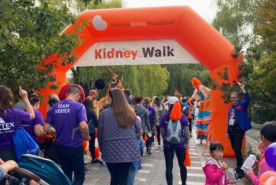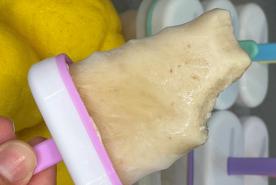What does iron do?
Iron helps your body in many ways. One way is to help make red blood cells. Red blood cells carry oxygen from your lungs to all parts of your body. They give you the energy you need for your daily activities. The kidneys tell your body to make red blood cells. Iron helps make red blood cells healthy.
How much iron do I need?
You need enough iron to keep a healthy hemoglobin level. Hemoglobin is part of your red blood cells. It's the part that carries oxygen through your body. Hemoglobin is made up of oxygen and iron. So, one way to know if your body has enough iron is to measure how much hemoglobin is in your blood. The normal hemoglobin level in healthy people is about 12-15 g/dL for women and 13-17 g/dl for men. People with kidney disease or kidney failure may have lower levels. Check with your healthcare professional to find the level that is right for you.
How will I feel if my iron level is low?
If your iron level is low, you may have low hemoglobin. This can cause you to:
- Look pale
- Feel more tired or weak
- Feel "down" or depressed
- Feel short of breath with activity
- Have chest pain
- Feel dizzy or light-headed
- Feel numbness or coldness in your hands and feet
- Have a faster heartbeat
Talk to your healthcare professional if you have any symptoms listed above. Write down how you feel, your allergies, medications, previous medical procedures, and any health problems.
If I have kidney disease, what is the treatment for low iron?
If you have low iron and low hemoglobin, your doctor will develop a treatment plan that is right for you. One or more of the following may be suggested:
- Eating more foods that have iron such as red meat, beans and green vegetables. However, eating foods that are rich in iron may be hard due to your kidney diet. A dietitian can help you plan meals that include iron and other minerals.
- Iron supplements by mouth in tablet or liquid form.
- A vitamin and mineral supplement with iron, vitamin B12, and folic acid. Your dietitian or healthcare professional will help you choose one that is right for people with kidney disease.
- Iron medicine given by injection into a vein during visits to your healthcare professional's office or clinic.
Keep in mind, iron supplements can affect other medicines you may be taking. Talk to your dietitian, pharmacist or another member of your healthcare team before taking iron tablets or liquid supplements.
If I have kidney failure, what is the treatment for low iron?
There are several methods for treating low iron in people with kidney failure, but not all are available for everyone on dialysis. You and your healthcare professional will decide which method is best for you. You can:
- Take extra iron by mouth in tablet or liquid form.
- Get iron injected into a vein at the healthcare professional's office (called Intravenous iron or IV iron).
- Receive an injection of iron into the blood tubes during hemodialysis treatments.
- Have iron added to the dialysate (cleansing solution) during hemodialysis treatments (dialysate iron).
Most people on dialysis need extra iron because:
- Your diet may lack iron rich-rich foods. Foods that are rich in iron, like red meats and beans, may be limited in your dialysis diet. Without enough iron-rich foods, you are more at risk for low iron. A dietitian can help you choose foods that are good sources of iron, vitamins, and other minerals. Check with your dietitian before making any changes in your diet.
- You lose a little blood during hemodialysis treatments. At the end of each hemodialysis treatment, a small amount of blood is usually left behind in the dialyzer (artificial kidney). This can be a source of iron loss over time. However, if your healthcare provider finds that you are a good candidate for dialysate iron, you may be given this treatment during your dialysis to replenish this loss of iron during treatment.
Is iron safe?
Your healthcare professional checks your iron levels and decides the safest method for iron supplementation that is right for you. The different methods include oral iron, IV iron and dialysate iron. Talk to your healthcare professional if you have any questions about your iron treatment. Some patients have concerns about IV iron and iron dialysate. Here is some information on safety:
- Is IV iron safe? IV iron is safe for most people. Talk to your healthcare professional if you have any questions about IV iron. Tell them about any medicines that you are allergic to. On rare occasions, some people may have a reaction to IV iron. Reactions may include low blood pressure, nausea, vomiting or diarrhea. Some reactions can be severe and even life-threatening. It is also possible to get too much iron.
- Is iron in dialysate safe? The use of dialysate iron has been shown to help keep normal iron levels in the body in hemodialysis patients (this type or iron is used only in hemodialysis patients). Dialysate iron has been shown to be tolerated by most patients who receive it. It can only be used in dialysis facilities with specific dialysate preparation systems.











